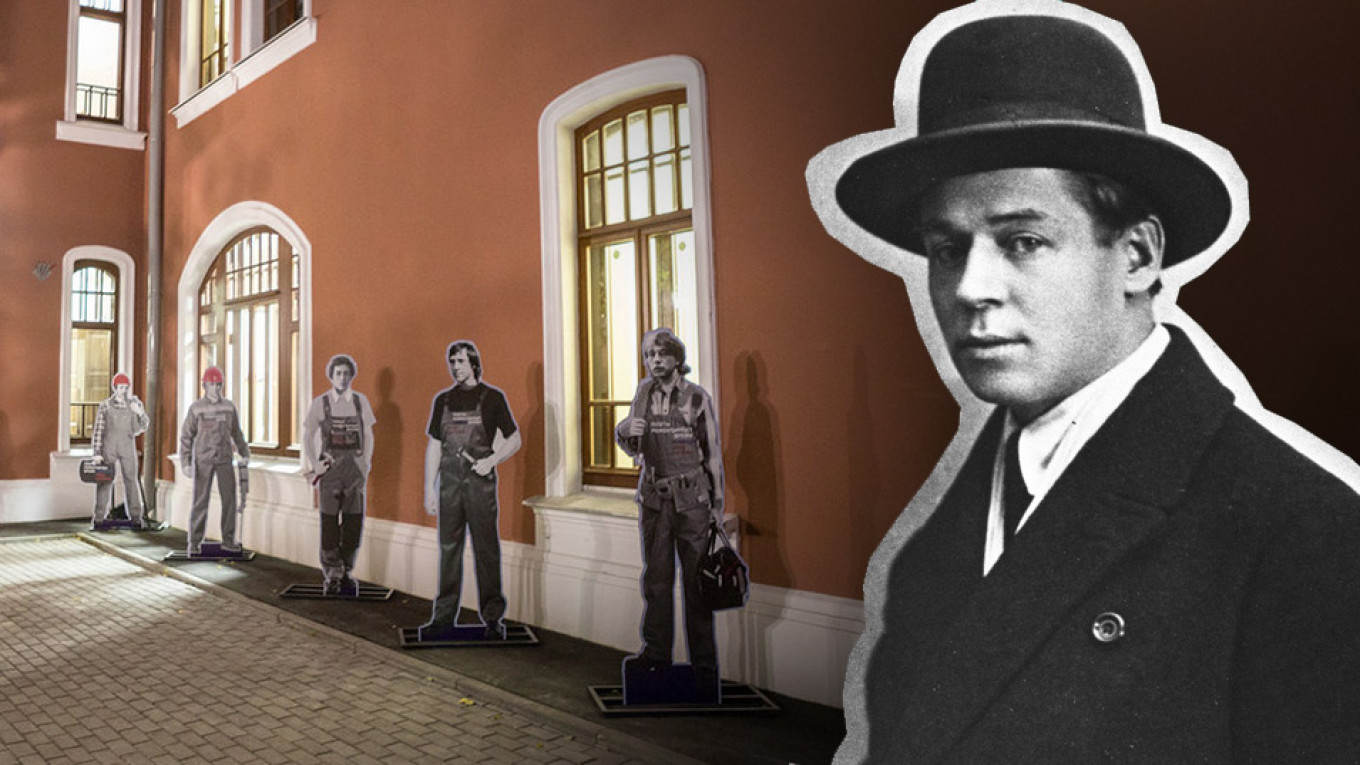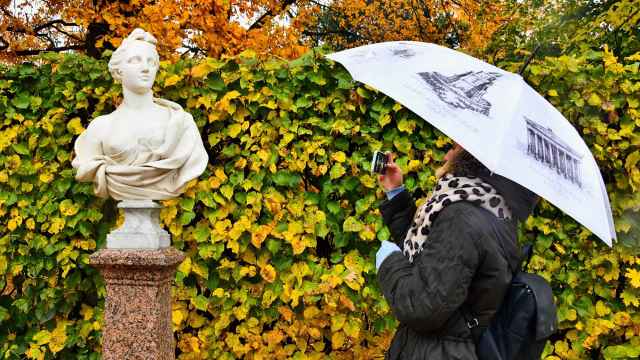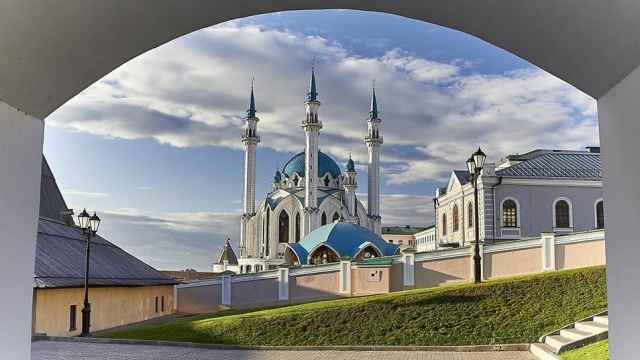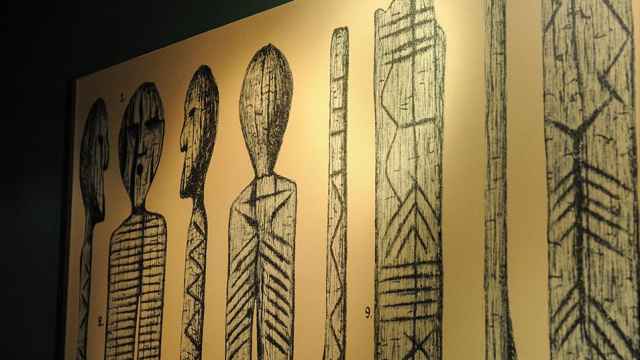The ghost of Russian poet Sergei Yesenin is trying to warn America about a cataclysmic event that could occur there in 2022, according to a specialist on paranormal activity.
“He visited America in 1922, and I believe that he is now trying to warn them about a possible bad thing happening there on the 100th anniversary of his visit,” said Mikhail Miller, a self-described paranormal expert whose latest book is titled “Practices For Changing Your Future,” at a press conference Thursday afternoon.
The Yesenin Center museum in central Moscow called the press conference after a security guard spotted a shadow in front of the building on the night of July 18. The museum is dedicated to the poet who died aged 30 in 1925.
During the press conference at the NSN radio station’s offices, a video played showing the security guard, Olga Korolyova, watching a security camera recording from the previous night and appearing frightened as a shadow moved across the ground in front of the museum for about five seconds.
The shadow could have been caused by dust collecting on the camera’s lens, a video journalist attending the press conference told The Moscow Times.
Korolyova added that over the past year, she has often heard strange sounds like knocking on the walls or unidentified objects rustling quickly during the night shift.
“It couldn’t have been our cat Katya,” said the director of the museum Svetlana Shetrakova. “She doesn’t make sounds like that.”
Shetrakova said that Yesenin’s ghost has previously made appearances at the center, which opened in 1995, and that his appearances have also foreshadowed historical events.
“We were rushing to get the museum opened in 1993 but we were just not able to make it in time,” she said. “The night before the White House burned” — a reference to the day tanks fired on the Russian parliament building in Moscow in October 1993, during a political standoff between then-Russian President Boris Yelstin and the army — “my favorite portrait of [Yesenin] fell off the wall.”
Shetrakova had earlier arrived to the NSN offices late and flustered, stopping to give The Moscow Times quick comments before heading inside.
“My phone didn’t charge overnight and then I got lost on the way,” she said. “Some forces were trying to prevent me from getting here.”
A Message from The Moscow Times:
Dear readers,
We are facing unprecedented challenges. Russia's Prosecutor General's Office has designated The Moscow Times as an "undesirable" organization, criminalizing our work and putting our staff at risk of prosecution. This follows our earlier unjust labeling as a "foreign agent."
These actions are direct attempts to silence independent journalism in Russia. The authorities claim our work "discredits the decisions of the Russian leadership." We see things differently: we strive to provide accurate, unbiased reporting on Russia.
We, the journalists of The Moscow Times, refuse to be silenced. But to continue our work, we need your help.
Your support, no matter how small, makes a world of difference. If you can, please support us monthly starting from just $2. It's quick to set up, and every contribution makes a significant impact.
By supporting The Moscow Times, you're defending open, independent journalism in the face of repression. Thank you for standing with us.
Remind me later.







